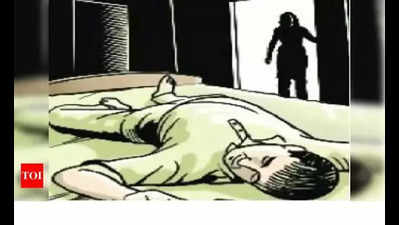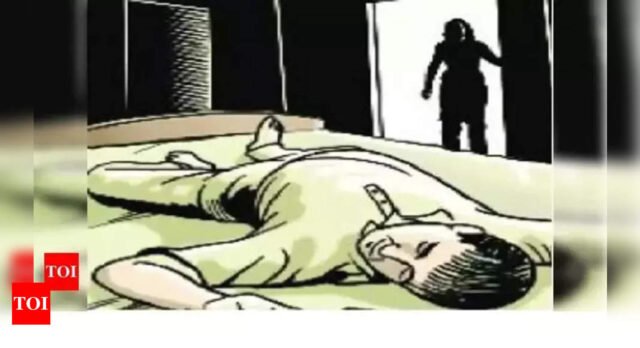
Vijayawada: A TDP functionary from Gollapudi committed suicide allegedly facing harassment from money lenders.
Karampudi Ravindra committed suicide on March 17 after consuming pesticide at Kanchikacherla.
He had recorded a video before his death on why he is taking the extreme step which came to light on Tuesday.
According to B Raju, sub-inspector, Kanchikacherla, Ravindra, was involved in gold and real estate business, borrowing money from multiple sources.
Ravindra faced harassment from creditors, some allegedly backed by YSRCP leaders. He was coerced into transferring 15 properties, including a farm worth Rs 2 crore, to his lenders for loans as small as Rs 20 lakh.
The creditors allegedly visited his home, verbally abused him, and even stayed overnight to exert pressure. A YSRCP functionary from Gollapudi was accused of acquiring Ravindra’s farm and delaying its return.
It is alleged that some politicians discouraged Ravindra’s debtors from repaying him, compounding his financial distress.
His son attempted suicide following the harassment. Ravindra’s brother-in-law relocated his wife and children to the US. This intensified the creditors’ pressure on Ravindra, as they feared he might leave the country.
In his video message, Ravindra regretted losing all his properties and expressed his desperation to recover money owed to him by an individual named Vadlamudi Rajesh.
He pleaded for any recovered funds to be used to settle his debts, with any surplus intended for his children’s future.
Senior TDP leader Devineni Uma Maheshwara Rao attended Ravindra’s funeral in Gollapudi, criticising the alleged political complicity in the harassment.
The inspector said that the amount involved and extent of the properties transferred will be revealed as the investigation progresses,” he stated.
Ravindra’s death is the latest in a string of cases highlighting the predatory practices of money lenders in the state.







